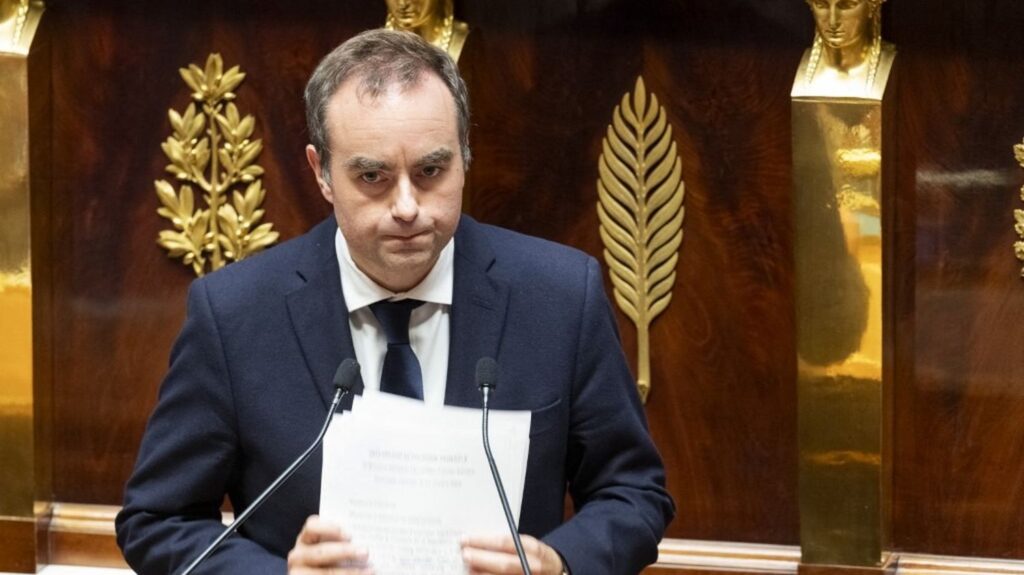The Prime Minister proposed on Tuesday to temporarily suspend the law, which aims to increase the legal retirement age from 62 to 64 by 2030.
/2024/11/16/paolo-philippe-1701448169921-673878c801831628857108.png)
Published
Reading time: 5min
/2025/10/14/080-hl-stenani-2918621-68ee647491924141056700.jpg)
Pension reform will return to Parliament. Two and a half years after the adoption without a vote of the emblematic text of Emmanuel Macron’s second five-year term, which plans toeraise the legal age of departure from 62 to 64 by 2030, the Prime Minister proposed, Tuesday October 14 during his general policy declaration, to suspend the text “until the presidential election” of 2027. This will require the adoption of a new law. This decision, which concerns only the age measurement and the contribution period, responds to a request from the Socialist Party. The latter, in return, agreed not to censor the government. Franceinfo summarizes the consequences for the French of such a change of heart, if it is ratified by the vote of the deputies.
The starting age will be frozen at 62 years and 9 months
The Prime Minister proposed to temporarily suspend the pension reform, which aims to postpone the legal retirement age from 62 to 64 by 2030. Promulgated in April 2023 and entered into force in September of the same year, it plans to raise, at the rate of one quarter per year of birth from the generation born in 1961, the retirement age until it reaches 64 for people born in 1968. Furthermore, it increases the contribution period to benefit from a full pension from 168 quarters (42 years) to 172 quarters (43 years) by 2027.
As it stands, a suspension will block the starting age at 62 years and 9 months – as has been the case since September 1, 2025 – “until January 1, 2028”according to Sébastien Lecornu, when he was to increase to 63 years in 2026, then 63 years and 3 months in 2027. “In addition, the insurance period will also be suspended and will remain at 170 quarters until January 2028”also announced the Prime Minister.
This suspension, welcomed by the Socialist Party and the CFDT, does not mean the repeal of the reform and the return to retirement at 62. “This suspension consists of pausing the reform process. The modalities will only be shifted in time and will resume at the same stage and at the same pace (after suspension)“explains Annie Jolivet, labor economist at the National Conservatory of Arts and Crafts (Cnam).
This break will benefit people born from 1964
Since its entry into force on September 1, 2023, the pension reform carried out by Elisabeth Borne has shifted the retirement age to 62 years and 3 months for people born between September 1 and December 31, 1961, then to 62 years and 6 months for the 1962 generation and to 62 years and 9 months for the 1963 generation. pension reform until January 1, 2028 will benefit to generations born in 1964 and after.
Concretely, people born in 1964 will be able to retire three months earlier from October 2026 (62 years and 9 months instead of 63 years) and those born in 1965 six months earlier. The 1966, 1967 and 1968 generations will also be able to benefit from this suspension, in the event that the postponement of the legal age of departure resumes at the same rate in 2028. According to the Prime Minister, “this suspension will ultimately benefit 3.5 million French people”.
A cost estimated at “400 million euros in 2026 and 1.8 billion euros in 2027”
The Prime Minister estimated that the cost of this suspension, which must still be voted on in Parliament, would be “400 million euros in 2026 and 1.8 billion euros in 2027”. Sébastien Lecornu proposes in particular to compensate for this suspension “through cost-saving measures”. In the spring, the Court of Auditors estimated that stopping at a legal age of 63 “would have a full cost of 13 billion euros on public finances for the financial year 2035”including 5.8 billion euros in deterioration of the pension balance, and 7.2 billion in loss of public revenue.
A possible suspension of the reform will thus have a cost because “employees will retire earlier, and therefore pensions will be paid” ahead of what the initial law provides, explains Anne Jolivet. However, according to the economist, these additional expenses for the State will not be major. “This could bring additional files for pension funds and destabilize certain employers by precipitating retirements planned later with the 2023 reform”she adds.


